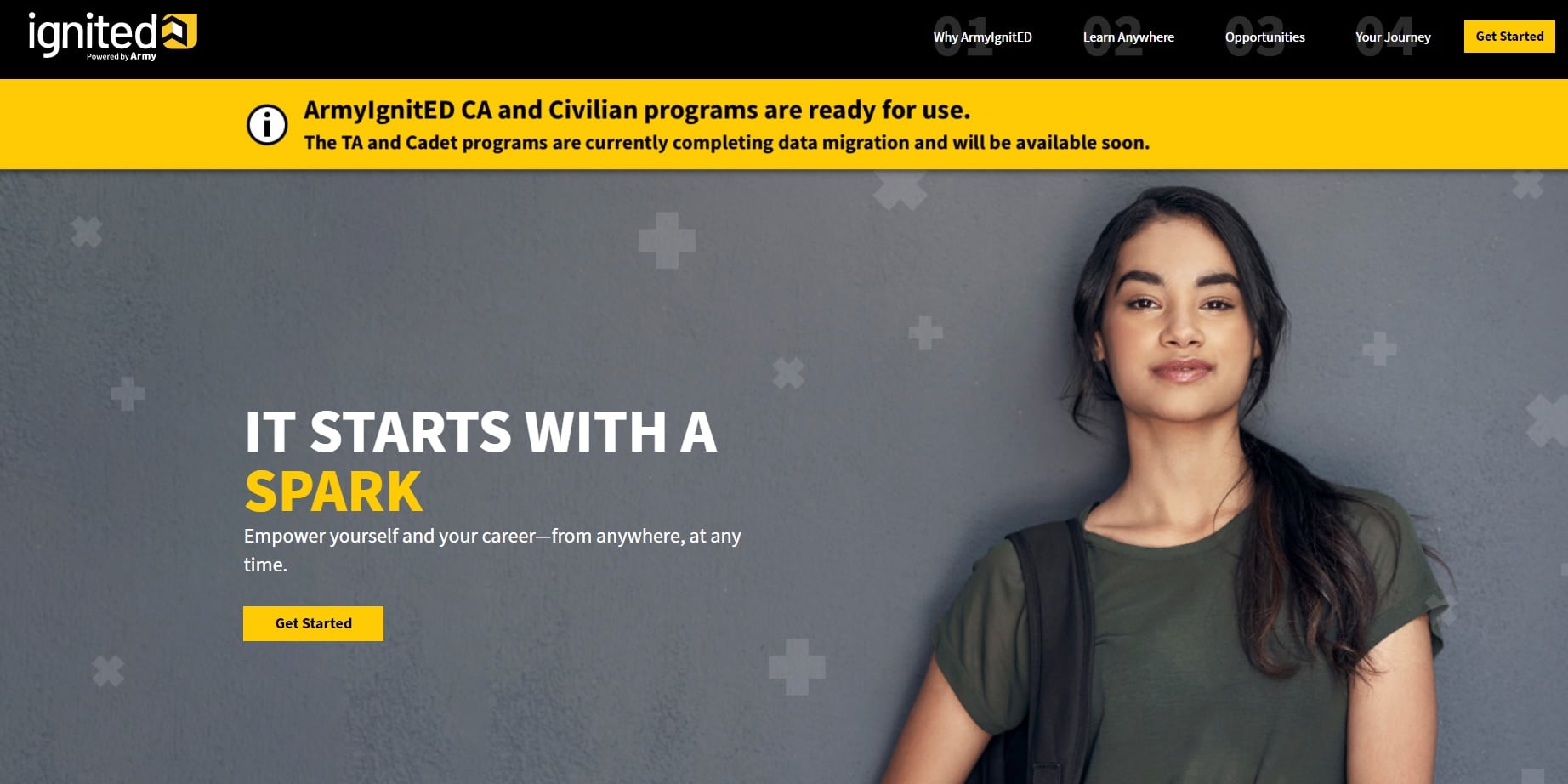The Army formally launched ArmyIgnitED, its new educational assistance portal, across the entire force last week after a months-long delay resulting from technical glitches that left many soldiers waiting for the Army to pay their schools.
Some even paid out of pocket or had to forego other student aid for their college courses.
“As of 15 July, 131 educational institutions, including 23 of the 25 most attended institutions, have completed uploads of their degree plans and enrollment files,” said Army University officials in a press release. “All Soldiers whose educational institutions have uploaded their course enrollment files can now request tuition assistance for future courses in ArmyIgnitED.”
Approximately 70 percent of tuition assistance enrollments will be live in the new system once an additional 33 schools complete their in-progress data uploads, the release said.
Many soldiers were unable to receive their tuition assistance after the Army deactivated the old portal, GoArmyEd, in March and before ArmyIgnitED — contracted through Deloitte — was ready to go live.
Harry Sarles, an Army University spokesperson, told Army Times that GoArmyEd was sunset “because no additional contract extensions were available. GoArmyEd’s Authority to Operate was set to expire.”
The service said it will begin processing “unpaid tuition assistance enrollments to reimburse educational institutions” on Monday. Sarles said more than 40,000 exception-to-policy enrollments are included in this group.
“Pending payment of invoices from [GoArmyEd] are almost complete in terms of reimbursing educational institutions,” said Sarles. NBC News previously reported those payments would be complete by the end of June.
For some soldiers, the financial impacts of the delayed tuition assistance are already here.
Some, including one Hawaii-based NCO who spoke with Army Times, had their unpaid tuition bills covered by other federal student aid, such as Pell Grants, which normally would be refunded directly to the student.
“I’m in an [information technology] major,” said the NCO, who requested anonymity in order to speak freely about his experience. “So I need to pay for lab software and textbooks [using the Pell Grant money]. It’ll be more than $300 for a class.”
The soldier had used a personal credit card to cover those expenses, expecting to receive the Pell money, which the school instead applied to the tuition bill that the Army didn’t pay.
“I’m definitely upset about it,” he said. “I have soldiers myself who don’t even want to sign up for school right now because this whole process has been a nightmare.”
Other soldiers sounded off in the Facebook comments on posts made by the ArmyIgnitED page.
One soldier said his university is withholding the degree that he just earned because the Army hasn’t paid the outstanding balance on his account.
Another said she’s still waiting on the Army to reimburse the school for two semesters’ worth of courses.
Some soldiers who have paid out of pocket asked why the Army can’t just reimburse them directly.
“[In accordance with Defense Department] policy, tuition assistance is established to pay the educational institutions directly,” said Sarles. “There is no authority to directly reimburse soldiers for tuition costs.”
Sarles also said the Army reached out to individual educational institutions that were asking soldiers to pay out of pocket. But an unknown number of soldiers paid anyways, fearful of losing their classes or being unable to graduate.
The Hawaii-based NCO said that tuition assistance is too valuable of a program for the Army to let soldiers fall through the cracks.
“TA is one of the best things the Army has to offer…and this whole ordeal has stopped people from taking college classes, and from bettering themselves professionally,” he said. “I feel like somebody dropped the ball, big time, when they transitioned from GoArmyEd to the IgnitED system. And I feel like no one’s gonna really take the blame.”
Davis Winkie covers the Army for Military Times. He studied history at Vanderbilt and UNC-Chapel Hill, and served five years in the Army Guard. His investigations earned the Society of Professional Journalists' 2023 Sunshine Award and consecutive Military Reporters and Editors honors, among others. Davis was also a 2022 Livingston Awards finalist.




